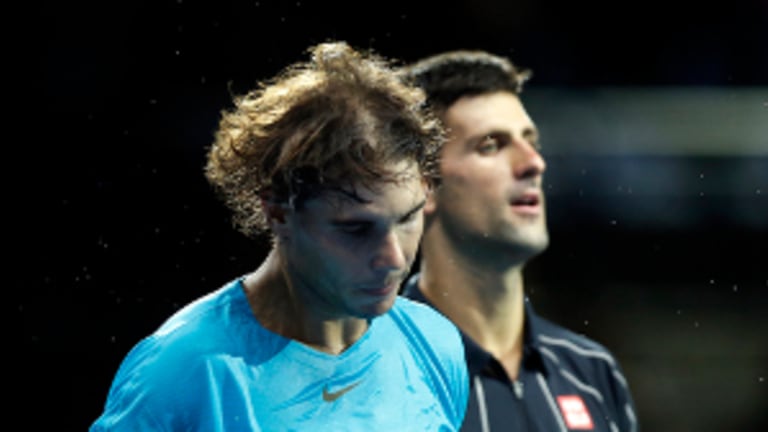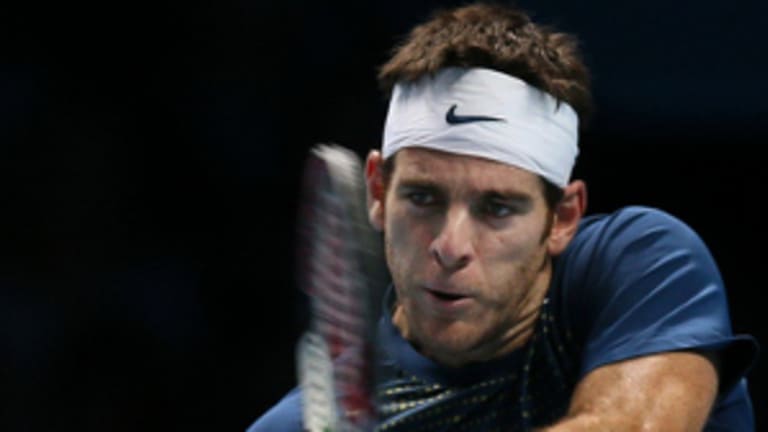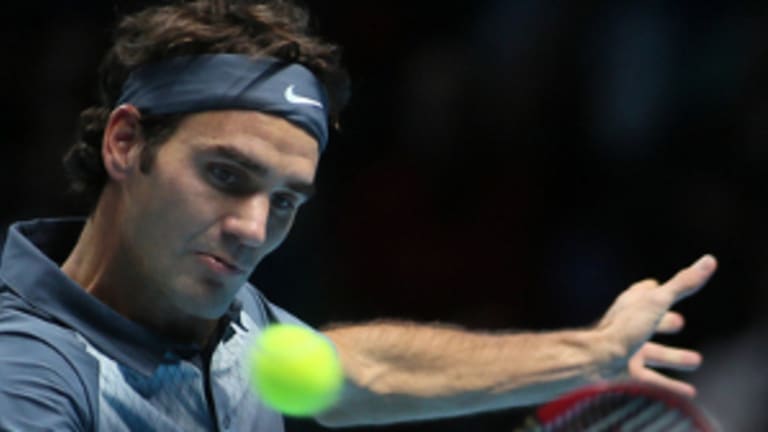- As the possible culmination of another chapter in the rivalry between Rafael Nadal and Novak Djokovic
Ideally, a tennis duel should have momentum shifts on a regular basis, but it rarely works out that way. Chrissie dominated Martina, and then Martina dominated Chrissie. Borg quit when McEnroe turned the tables on him. Nadal built a lead on Federer, and has kept building. But Rafa and Nole really do go back and forth. When one of them has the advantage, it doesn’t mean he’ll have it for long; it means the other man will be motivated to find a way to change the dynamic again.
This fall, that man was Djokovic. Losing the No. 1 ranking to Nadal at the U.S. Open turned out to be the key to unlocking his season. Novak finished with 22 straight wins, two of which came over Rafa, and he ended a year of big-match losses with a big-match win. Earlier in 2013, it had been Nadal who had moved forward and played more aggressively, and successfully, against Djokovic on hard courts. In London, it was Djokovic who stepped up to the baseline, controlled the middle of the court, and pushed Nadal back.
In the process, Djokovic showed again that he has the more natural game for hard surfaces, and that he’ll always be a difficult match-up for Nadal. The key moment of their 39th encounter came at 3-3 in the first set. Djokovic had started with a 3-0 lead, before giving it back. Now Nadal, who began nervously, was loose, moving well, and hitting with grunt-fueled oomph. On the first point, he pushed Djokovic out of position with an inside-out forehand and briefly had the advantage in the rally. But Djokovic took it right back with a cross-court backhand that surprised Nadal. Rafa eventually sent a down-the-line forehand wide; the momentum was back with Djokovic, and he would win the next three games for the set. No one can hit that backhand on Rafa, and turn the tide from defense to offense against him, the way Djokovic can.
Rafa said the crucial factor in the match was the serve: Nole had his working, and he didn’t. It’s true, Djokovic’s serve helped him immensely yesterday, including the scream-inducing ace that set up his third and final match point. But just as important was another shot that Nadal didn’t have: His down-the-line forehand. He had hit it well the previous day against Federer, but he overcooked it all evening against Djokovic. Rafa needs that forehand to break the rally patterns that favor Djokovic, but he has to hit it extremely well to be effective against the speedy, bendy Serb. It looked like Nadal felt the pressure to make it perfect yesterday.
You may wonder, as I briefly did, why Nadal spent so much time so far back in the court. Doesn’t he know, after his success this year, that he should be farther in on hard courts? The thought reminded me of something Rafa said this summer, when he was asked about his positioning. He said that it wasn’t the tactics that led to his good play; it was his good play that led to the tactics. In other words, it isn’t as easy as simply taking a step forward in the court whenever he feels like it. Nadal has to be hitting the ball especially well before he has the confidence to move out of his traditional comfort zone and hit it earlier. Only against Federer in London did he appear to be feeling that confidence.


